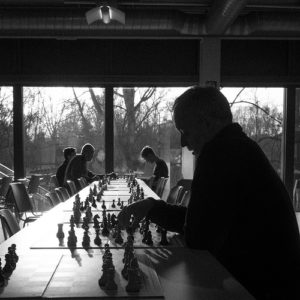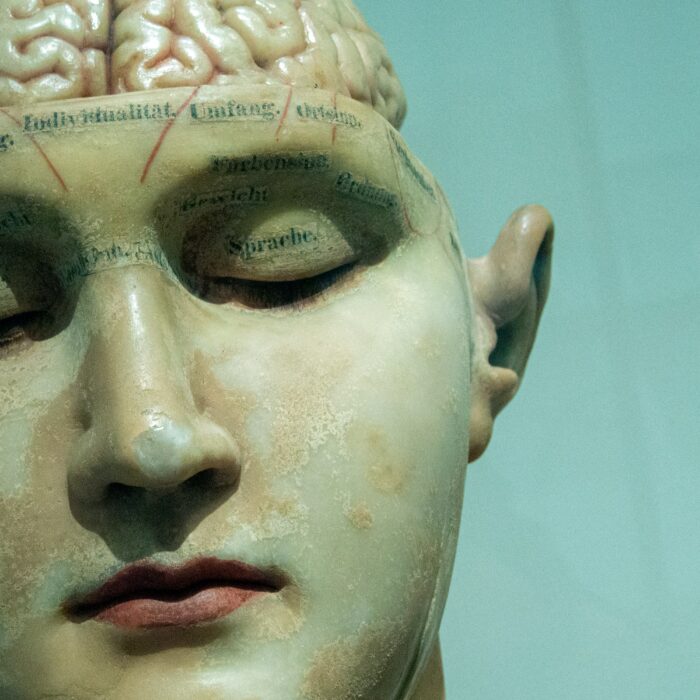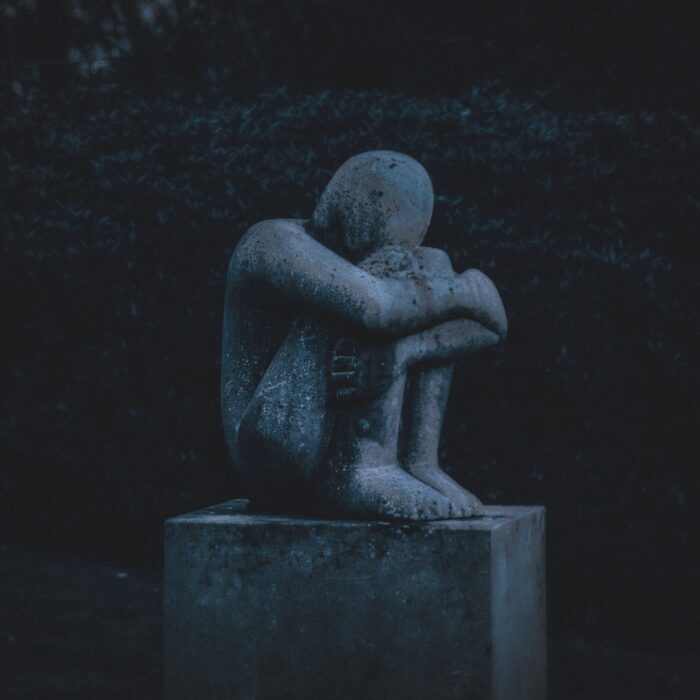You have no items in your cart. Want to get some nice things?
Go shopping 
The ear-piercing screech of brakes. I spin round, throw up a hand to shield my eyes from the blinding double headlights. The black Lincoln Continental’s grill crumples into twisted shards when it slams into the tree. Two men clamber out and come loping across snow-blanketed Washington Square Park. One, his unbuttoned tweed overcoat trailing in the wind, is close enough to see the plum-coloured bruises on his face. The wounds inflicted by the chair Zoltan hurled across the crowded restaurant. I see the ugly half-closed eye and in his clenched fist, the black snout of a Glock 9mm pistol.
Let me take you to the beginning. I came across Zoltan at the Café Figaro in Bleeker Street one cheerless winter night in 1966. It was a welcome refuge after my shift waiting on tables at the Village Vanguard. I sat in front of a cold cappuccino, my nose buried in lecture notes for a philosophy final, struggling to keep my mind focused on Sartre’s Being and Nothingness. Hands up, everyone who believes phenomenological ontology means anything. My consolation was a well-thumbed paperback of Thus Spake Zarathustra, in which I would luxuriate on the subway to my dilapidated rented room in Hell’s Kitchen.
Zoltan sat at a corner table, scrutinising a chessboard. He picked up a white bishop, hesitated, replaced it on its black square, sucking deeply on a cigarette that burnt close to his yellowed fingertips. He tapped another from the blue packet and lit it with the glowing end of its predecessor, inhaling with an elegant nonchalance. There was a certain flair, a resemblance to Peter Lorrie in his Casablanca days, a pair of doleful hooded eyes, lips that curled effortlessly into a sneer, the Gauloises clenched tightly between thumb and forefinger. Then he caught my eye.
‘Strong player?’
I shrugged.
‘Fancy having a go? Maybe put five bucks on it?’
That was a provocation. ‘Sure, why not.’
Eight moves into the game I handed over a fiver. Then two more in quick succession. This, I was to learn, was how Zoltan earned his living, taking on all comers over a chessboard. A far cry from his previous incarnation as Attorney General of Hungary under Imre Nagy in 1956. Zoltan swizzled his cappuccino with a cinnamon stick and told me that when the Russian tanks came pouring over the border, he joined the hasty exodus to Vienna to escape the hangman’s noose. Zoltan’s MI6 interrogators sensed they were on to someone with exceptional qualities. After winning a tug-of-war with their American cousins, it was decided to pack Zoltan off to Oxford.
‘I was given a choice, Oxford or Cambridge. Oxford had a Leyland factory, so I thought maybe it’s a bit more like the real world. Anyway, what the hell was I do to in Vienna, hang around with the kaffe-mit-schlagsahners?’ He laughed quietly, ‘No,’mit-out for Zoltan, danke. By the way, checkmate, dear boy.’
I was about to order another round of cappuccinos when Zoltan crumpled up his Gauloises packet. ‘Shall we take a stroll over to Sixth Avenue? I know a cheap place for cigarettes.’
We trudged through the snow to the corner of Washington Square South, huddled against the icy wind that roared across the park. A portly middle-age woman in a camel duffel coat stood shivering behind a box piled with anti-Vietnam War badges. ‘Peace! Peace for twenty-five cents!’ she pleaded.
‘Hah! They’re finally coming round,’ Zoltan muttered behind his scarf.
On Friday evenings Zoltan would hold court in his West 10th Street apartment, cluttered with books and bottles, the blackened espresso pot gurgling on the gas hob, the room flooded with the molasses aroma of Gauloises. His audience consisted of me, Miguel and Helmut.
‘What’s that protruding from your jacket pocket? Hemingway!’ A look of bemused astonishment crossed his face.
‘Yes, Fiesta. I’m planning a trip to the Pamplona festival after graduation.
‘Ah, Hemingway.’ Zoltan held up a finger in a way that reminded me of the moustachioed figure on a Lavazza mocha pot. ‘He was fine writing about bulls and sharks. But people…that’s when it all fell apart.’
‘We like to think of him as being ahead of his time.’
‘No, no, dear chap. What you mean is behind his time. And, and by a happy coincidence I happen to own a bottle of very fine Spanish brandy, Duque de Alba. Every bit as good as its French cousin and a lot cheaper. Miguel, Helmut… anyone care for a snort?’
Zoltan produced four snifters wedged between his fingers by their stems and in his other hand a bottle, its red wax seal unbroken. He poured each of us a Hemingway measure. ‘Put it this way,’ he said, swilling the golden liquid in his snifter, ‘Dostoyevsky, Victor Hugo, Cervantes –they all made their appearance just when everything was falling to pieces.’ He stroked his chin, inhaling deeply from the snifter. ‘Shakespeare!’ he exclaimed. ‘After that, what was left for England to do but go out and conquer the world? So like I say, give it another fifty years, until the money runs out here. That’s when your Hemingway would have had a story to tell. Anyone for a top-up?’
Miguel was a regular, so too weedy little Helmut. And of course myself, sitting on the carpet, knees drawn up under my chin. Miguel the Argentine, preposterously wrapped in a black woollen cape, fancied himself an artist. He was a swarthy Levantine with a pinched, under-nourished face, who had left Buenos Aires to launch his painting career in Greenwich Village. Alas, New York had yet to acknowledge his genius. From time to time he would sell a pint of blood for grocery money. Helmut was a foppish, blond Austrian the wrong side of forty, hobbling about on a palsied leg. He spoke obsessively about his job at Shapiro’s Art and Collectibles, and rather nastily about Mr Shapiro. Helmut pronounced Shapiro with a snarl that made me wonder what he might have been up to during the war.
After the brandies, Zoltan brewed a second pot of coffee and stirred three spoonfuls of sugar into his cup. He padded into the room in felt slippers and a Chinese silk dressing gown and dropped into an overstuffed leather armchair next to a brass floor lamp that tilted at a perilous angle. Only one of its two bulbs worked. It threw a watery glow on a shredded Persian carpet, a victim of the previous tenant’s tabby.
Helmut was having one of his tiresome moans about Mr Shapiro. It seems he had been refused overtime for the three afternoons he spent unloading crates of books. ‘And me with this,’ he said, tapping his withered limb that lay draped like a liana over his good leg. ‘He is a stinking shit, this Mr Shapiro.’
And a nasty piece of work was Helmut. But I don’t think he was the traitor in our midst. Like Miguel, he was too infatuated with Zoltan to betray him. Miguel, the poor sod, he had nothing to do with that business at Zettl’s. Miguel’s ambition was to find a wealthy New York dowager who would support him and his art in style. ‘I will paint and I will live like a king!’ he proclaimed with a crinkled smile.
‘Like a king!’ said Zoltan. ‘So that’s how you do it in America. Back home, you had to knock down the other chap’s castle and flatten his army. Here you marry the queen. Marvellous.’ Poor Miguel. Last heard he had been arrested, half-starved, in Sheridan Square with his fingers in an undercover policewoman’s handbag.
No, it had to be Takas, the Hungarian with the rheumy tadpole eyes and foul breath who owned the second-hand basement bookshop under Zoltan’s place. Zoltan never trusted him. I recall walking past the shop one morning, when Takas was hauling in his rubbish bins. Zoltan flashed him an icy grin, like the one evicted home owners turn on the bailiffs. ‘Bastard,’ Zoltan hissed from the side of his mouth.
Zettl’s, 83rd Street and Second Avenue. The noise level in the restaurant rivalled that of a minor train wreck. Families of Hungarians clustered around tables, clinging desperately to the past like a button dangling from a coat. November 1966, the tenth anniversary of the Uprising, a few weeks after our encounter at the Figaro. Miguel had been let off with a caution, Helmut had quietly evaporated. I phoned Shapiro’s one day, just out of human curiosity. Mrs Shapiro explained in a frosty, nicotine-rich voice that Mr Grüber had taken his leave one afternoon, quite unannounced, taking with him a Goya etching she was holding for a client.
Oy vey, Helmut.
We were scooping the crumbs of a walnut torte off our plates when Zoltan decided he wanted another drink. He hailed the waitress, holding up his empty glass of Hungarian merlot. The po-faced woman pursed her lips, with an exasperated twirl of a pencil impaled in her mousy bun. We were lingerers, certain to incite the crowd at the door to insurrection.
The wine was begrudgingly delivered to our table and Zoltan lifted his glass. ‘Cheers, dear boy.’
The voices at the door suddenly dropped to a murmur. Two bulky men in tight-fitting double-breasted suits, characters straight out a gangster movie, had pushed through the door. They quickly spotted who they were looking for. Zoltan sprung to his feet. He snatched his chair by a leg and launched it. One of the men gave a howl of pain. We bolted past a blur of shouting faces, dashing into the street, up Second Avenue to hail a cab on the corner of 86th Street.
Zoltan pounded on the Perspex partition. ‘Washington Square! Come on, man, get moving!’ The cabby craned his neck round. I can still see his face, the sunken rat-like eyes and the marble-size brown mole on his left nostril. Out gushed a stream of Balkan- ‘Miserable pleb…’ Zoltan growled. I took a deep breath and jumped into the fray. ‘Yeah, okay! Look, it’s an emergency, I’m sorry if we sounded rude.’
‘Ach, rude, schmood,’ he said in a don’t-try-that-again voice. ‘Aright, aright, we go.’
‘Zoltan,’ I whispered, ‘what the hell is going on?’ I licked the beads of sweat off my lips. Zoltan’s unblinking eyes were fixed on the windscreen. ‘They hanged the wrong man.’
‘They what?’
‘So they’ve come for me. It was not unexpected.’
The Russians had stopped a lorry crammed with Hungarian refugees heading for the Austrian border. They dragged out a man crouching under a tarpaulin, who had the misfortune of bearing a close resemblance to Zoltan, and they hanged him. Ten years later someone tipped off the Hungarian Consulate that Zoltan was still alive and in New York.
‘They came to kill you?’
‘Looks that way, wouldn’t you say? Driver, drop us on the corner of Washington Square North.’ I made a desperate dash for the nearest tree, my trembling fingers barely able to undo my zip in time to release a gush that melted the snow into a steaming patch of yellow slush.
Zoltan winced. ‘Couldn’t you have saved that for the café?’ Come on, damn it, let’s go.’
‘Go? Go where?’
‘I just told you – café. Ca-fé! The Figaro, Reggio, anywhere. Get moving.’ Zoltan wedged a cigarette between his teeth, waiting for me to button my overcoat. He squinted over the pale flame of the match, ‘This is grown-up business, dear boy. You maybe want to make tracks?’
My feet were two frozen lumps squelching inside waterlogged shoes. There was a squealing of brakes behind us. ‘For Christ’s sake, Zoltan, we need to go to the police.’ But when I turned round, Zoltan was gone.
That was when the Lincoln Continental skidded into the tree. I dashed across the Square, the two heavies shouting as they closed in behind me. I lost my footing and stumbled. A stroke of luck — overhead I heard the thwak of a bullet crash into a tree. I clambered to my feet but my legs were nearly paralysed, as if encased in treacle. My lungs seared with pain. I forced myself to stagger on and suddenly hit a patch of ice. That’s where my legs shot out behind me. I landed on my face, my arms and legs akimbo, speeding head-first into the concrete fountain. I heard a voice cry out, ‘Hey, you two. Police! They’ve got a gun!’
I don’t think I lost consciousness. I can remember hearing a siren and the quick crunch of booted feet across the snow. Two cops hovered over me. One of them, ruddy-faced, New York Irish, ran his fingers skilfully down the sides of my torso and legs. ‘Nah, nuthin’ broke,’ he said, blowing into his hands. His partner, a pock-marked Hispanic, wrestled with a lump of chewing gum. ‘Oh yeah? Have a look at da guy’s head!’ The head he referred to felt like it had been hit by a wrecking ball. ‘Holy cow, that’s one hell of a lump you got there, mister. You sure ya feelin’ okay? C’mon, well give ya a lift home.’
They bundled me into the back of squad car. We manoeuvred up Sixth Avenue behind the slow, honking traffic. Irish cop: ‘Hey, you seen anybody in the park with a gun? Nah, nobody, right?’ That was my prompt. ‘No, nobody,’ I said weakly. Hispanic cop, behind the wheel: ‘Ya had a few drinks and you was tryin’ to skate across the ice. Havin’ fun, like. You slipped, you banged your head on the fountain. That’s it, right?’ He wound his window down and spat the wad of gum in front of a passing taxi. ‘Yeah,’ I sighed, ‘that’s it.’ It was Saturday night. They were looking to finish their shift with a minimum of disruption. The only witness to the attack had been one local resident (witness age seventy-eight, far-sighted, not wearing glasses at time of incident) walking his pug. Witness claimed to have seen two men, one waving a gun (‘something that maybe looked like a gun’) chasing someone across the park (‘maybe two people, I can’t be sure at that distance’). Witness declined to give formal statement. The Lincoln Continental was gone. There was no sign of two thuggish-looking men in overcoats. No sign of Zoltan.
I woke the next morning with the engine room of the Titanic thudding behind my eyeballs. I pulled on the clothes that lay piled in a heap by my bed and hopped a Number 5 bus down Fifth Avenue. I got off at 10th Street, pushed the buzzer on Zoltan’s intercom, knowing I would be greeted with silence. The next stop was Takas’s bookshop downstairs. I found the wretched misanthrope hunched over a large walnut desk, his pen jerking across the pages of a blue-lined ledger. I recoiled at the fox-like stench in the room. He didn’t take the trouble to look up when I entered.
‘Shop is closed,’ he said.
‘The door was open.’
His eyes were fixed on the ledger. ‘I go out with garbage, come back. Shop is closed.’
‘Where’s Zoltan?’
His nose twitched like a startled rodent emerging from the forest. His face betrayed no emotion. He carried on scratching figures onto the page.
‘What happened to Zoltan? You were behind this!’
I bunched my fists, anticipating the delight of pulping his face. ‘It was you who set those two Hungarian thugs on him.’ I stabbed a trembling finger at him. ‘You bastard, you’ll pay for this!’
‘Good day to you,’ he hissed, with a nod at the door.
I took a step forward, itching to put his lights out. Takas yanked open the desk drawer. For the second time in twelve hours I found myself staring down the gleaming black barrel of a Glock 9mm.
‘I say shop closed…is closed.’
I manage to bluff my way through Sartre and half a dozen other final exams on soon-to-be forgotten Advanced Level this and that. I stay on at the Vanguard that summer to build a nest egg for the Pamplona trip I had promised myself. If the mornings aren’t too hot I take a stroll down Fifth Avenue on my way to work, usually to Herald Square where I pick up the bus to the Village. I always take a seat on the left-hand side and when it pulls into the 10th Street stop, I put down my Times to crane across Fifth Avenue to the house with the double-fronted, arched doorway flanked by Corinthian columns and the neat row of rubbish bins arrayed in front of the bookshop basement entrance. That’s when I feel the firm squeeze on my intestines and the shortness of breath.
Zoltan, where the hell are you?

About Jules Stewart
Jules Stewart is the author of ten books, the latest of which, Gotham Rising: New York in the 1930s, is published by I.B. Tauris. Before turning to authorship he was a journalist for Reuters and later worked as a freelance, reporting from more than 30 countries. Stewart is a native New Yorker who has made his home in London.




